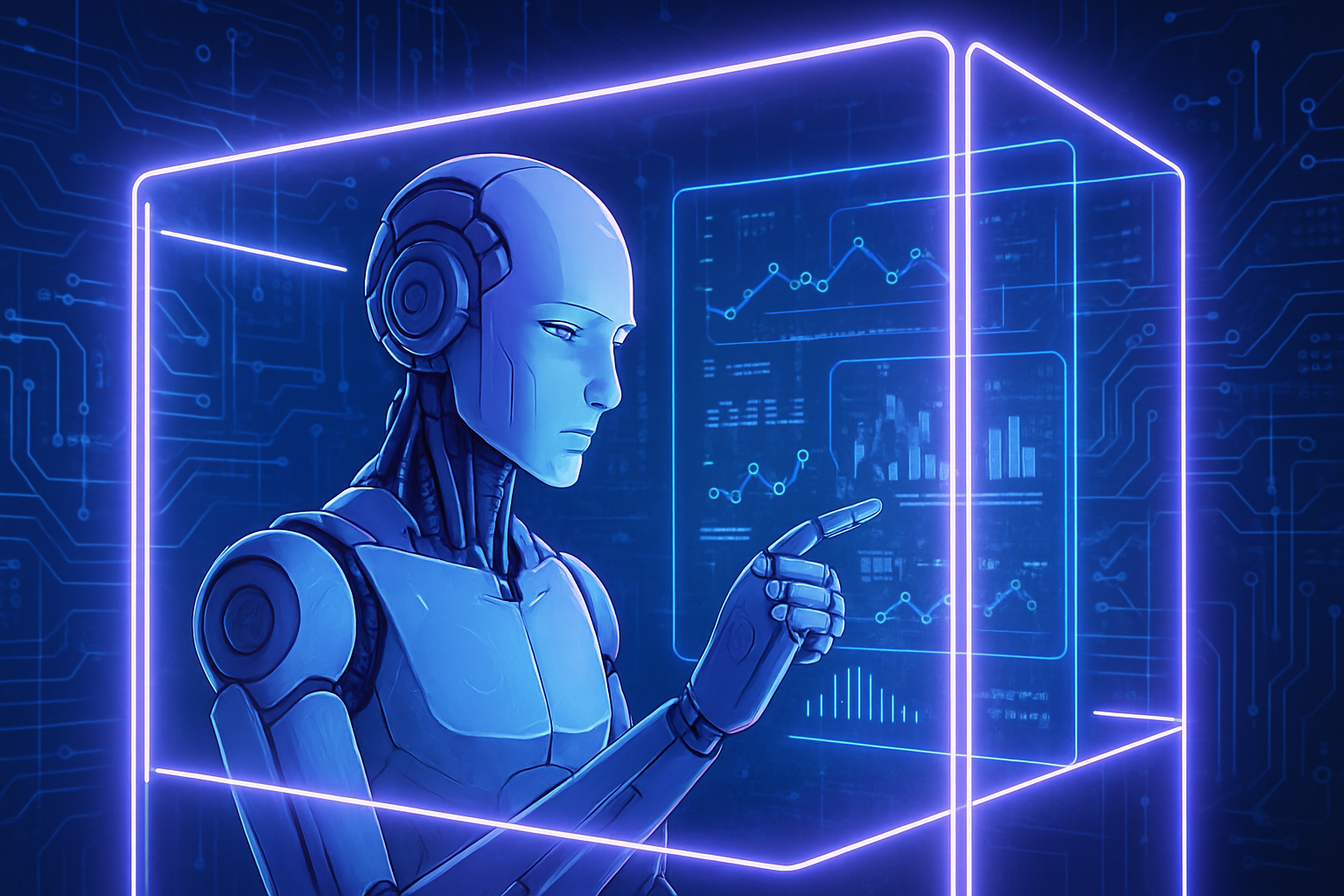The rapid rise of artificial intelligence raises formidable questions. The *hallucinations* generated by these systems often overlook the essential limits of their own analytical capacity. These *judgment errors* risk compromising crucial decisions, particularly in fields such as health. The start-up Themis AI, spun out of the prestigious MIT, positions itself at the forefront of this issue. Its ambition is to teach AI to recognize its own *uncertainties* and to avoid fallacious predictions. This intellectual challenge, long overlooked, is fundamental to building more responsible and reliable systems.
The Rise of Themis AI
Themis AI, an innovative startup out of MIT, focuses on a fundamental challenge: teaching artificial intelligence systems to recognize their own limitations. AI models, often exhibiting overconfidence, can generate fatal errors, especially in critical contexts like health.
An Urgent Need for Regulation
The rise of AI-generated hallucinations exposes growing risks. As these technologies are integrated into vital decisions, such as the development of cancer treatments, the need for an alert mechanism becomes paramount. Capsa, Themis’s platform, introduces a verification mechanism that allows AI to signal moments of uncertainty. This process helps AI models to question their own degree of certainty.
An Innovative Technology
Since its founding in 2021 by Professor Daniela Rus, Themis AI has designed a tool that can integrate with numerous AI systems. This system can detect signs of confusion, bias, or processing of incomplete data, elements often at the root of hallucinations. Sectors such as telecommunications and the oil industry have already benefited from this technology.
Practical Applications
Themis AI has successfully avoided costly errors in network planning for telecom operators and has helped oil companies analyze complex seismic data. These successes demonstrate the importance of innovation in managing the risks associated with AI.
A Preventive Approach to AI
The research initiated at MIT has addressed an essential question: how to enable a machine to recognize its own mistakes? Emphasis has been placed on detecting racial and gender biases in facial recognition systems. By rebalancing training data, Themis has not only identified problems but has also proposed solutions.
Optimizing Healthcare and Pharmaceutical Research
The potentially revolutionary applications of this approach are manifesting in the field of drug discovery. AI systems are now capable of evaluating treatments while indicating when their predictions are based on robust evidence or merely on assumptions. The pharmaceutical industry is already taking advantage of this evaluative capability, thus optimizing time and resources.
Improving Resource-Limited Devices
Devices with limited resources can also benefit from Themis’s advancements. With suitable technology, these devices can perform tasks locally with improved efficiency and only seek assistance from powerful servers when necessary.
The Ethical Implications of AI
The growing presence of AI in critical sectors necessitates deep ethical reflection. The ability to recognize uncertainty could represent a major asset. Other companies, such as IBM and Roche, are also exploring AI for diabetes management, paving the way for more personalized medicine.
Future Perspectives
As Themis AI continues to progress in its mission, the intersection of AI and ethics becomes increasingly relevant. The focus on recognizing limits will help establish standards of excellence for AI across various fields.
Frequently Asked Questions
What are AI hallucinations and why are they concerning?
AI hallucinations refer to cases where artificial intelligence systems produce incorrect information or information based on conjectures rather than reliable data. This becomes concerning when these systems make critical decisions, such as in medical treatments or road safety.
How does Themis AI help reduce AI hallucinations?
Themis AI uses its Capsa platform to teach AI systems to recognize their own uncertainties and to indicate when they are unsure of an answer, thereby avoiding costly and potentially dangerous mistakes.
What types of AI systems can benefit from Themis technology?
The Capsa platform is designed to integrate with virtually any AI system, including those used in telecommunications, oil and gas exploration, as well as chatbots, to improve their accuracy and reliability.
Why is it important for AI to recognize its limits?
It is crucial for AI to recognize its limits because this helps avoid decisions based on faulty assumptions, particularly in areas where serious consequences can occur, such as medicine or autonomous driving.
What has been the impact of Themis AI’s work on the pharmaceutical industry?
Themis AI has shown how its approach can transform drug discovery by enabling AI systems to differentiate solid predictions from mere conjectures, thus reducing the time and costs associated with researching new drugs.
How was Themis AI founded and what has been its journey?
Themis AI was founded in 2021 by MIT professor Daniela Rus and her colleagues. Its journey began with research aimed at making AI systems more reliable and evolved to address issues of bias and uncertainty across various sectors.
Is Themis technology suitable for low-power devices?
Yes, Themis AI’s technology is optimized to work with devices that have limited computing power, allowing them to efficiently perform tasks locally while requesting help from servers when necessary.
How does Themis AI’s research on bias affect the perception of AI?
By developing technology that limits bias in AI systems, Themis AI contributes to a more positive and trustworthy perception of AI, which is essential for its integration into critical fields.
What are the risks associated with AI that does not recognize its limits?
Risks include reckless decisions based on incorrect information, which can lead to serious consequences such as medical errors, road accidents, or financial losses for companies.
What are the recent advancements in Themis AI technology?
Themis AI continues to publish research on improving the accuracy of chatbots and applying its technologies across various sectors, highlighting its commitment to making AI more reliable and responsible.






